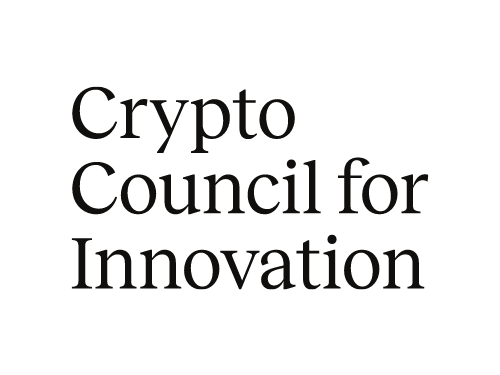
- In order to deepen policymakers and regulators’ understanding of staking, and contribute to the development of sensible staking policy, the Proof of Stake Alliance (POSA) is now a CCI project.
- The Alliance is anchored by Figment and Polychain Capital with participation from Andreessen Horowitz, Ava Labs, Blockdaemon, Eigen Labs, Electric Capital, Lido, Kiln, and Paradigm – bringing together builders, technologists and those active in proof-of-stake ecosystems with legal and policy experts to advocate for effective staking policy in key jurisdictions around the world
- POSA will release legal and policy papers, convene multi-stakeholder discussions, and educate about staking and key innovations in key jurisdictions
- Join the Alliance.
In order to amplify and broaden the staking industry’s voice with policymakers and regulators in the US and around the world, we’re excited to announce the Proof of Stake Alliance (POSA) is now a CCI project.
A Legacy of Advocacy: POSA’s Journey Since 2019
The Proof of Stake Alliance was founded in 2019 to educate regulators and lawmakers about the benefits of proof-of-stake (PoS) blockchains. The Alliance has always believed in bringing together builders, technologists and those active in proof-of-stake ecosystems with legal and policy experts to engage in successful advocacy. As we move forward with our anchor members Figment and Polychain Capital, and participation from a16z, Ava Labs, Blockdaemon, Eigen Labs, Electric Capital, Lido, Kiln, and Paradigm we are ready to continue this important work and amplify it globally.
Since POSA’s founding, PoS blockchains have grown to include 19 of the top 20 smart contract platforms with millions of users globally. The staking industry surrounding these proof of stake blockchains has also grown exponentially. The total market value of all PoS native tokens today hovers around $600b, roughly equivalent to the market cap of Visa.
So what is staking?
Because blockchains do not have central recordkeepers, they rely on participants to validate transactions and achieve consensus. While it varies from blockchain to blockchain, token holders temporarily commit (or “stake”) their tokens in order to build the blockchain and create new tokens. In many blockchains, validators and other base layer actors engage in activities that include proposing new blocks to the blockchain that are verified by other validators, verifying blocks that other validators have proposed, agreeing on the state of the chain, finalizing collections of blocks for permanent inclusion on the blockchain, and other technical activities. Validators and those involved in the block construction process keep the network secure, accurate, and current across the entire network of globally distributed computers.
And yet, given its importance, staking remains fundamentally misunderstood and mischaracterized.
Staking: Beyond the Myths and Mischaracterizations
In recent years the term staking has been co-opted to refer to a number of different activities, but it is not simply the act of “locking up” tokens. Staking is about securing PoS blockchains, which depend on the technology for their security and accuracy. Staking thus should be distinguished from activities like yield farming and lending, which do not concern blockchain security.
Protocol staking remains one of the safest ways for token holders to participate in blockchain ecosystems and be rewarded for doing so. Though there are some risks associated with staking, these risks tend to be technical, rather than financial and can be addressed through technological innovation and responsible staking practices from both stakers and validators. (One commonly raised concern “slashing,” or when a validator is punished for operating with bad intentions, resulting in the loss of staked tokens, has proven to be incredibly rare, as evidenced by the less than 0.001 percent of staked ETH that has been slashed to date.)
What does POSA believe in and what does POSA do?
At POSA we have three core beliefs:
- Participants in proof of stake blockchain ecosystems should ensure that the space is characterized by long-term, responsible growth – instead of short term profit-driven incentives.
- Those who participate in proof of stake ecosystems by facilitating staking should be properly recognized as offering technical services, separate and distinct from engaging in financial activities. All participants should believe and advocate for base layer neutrality.
- Consumer protection should remain paramount as the number of PoS token holders grows year over year
In recent years, POSA has urged the crypto staking industry to align around best practices in order to ensure consumer protection and responsible innovation in the staking space. In November of last year we updated our Staking Industry Principles, signed onto by nearly 20 industry leaders, which state that:
Principle I: Service providers should communicate clearly to ensure that users have all the information necessary to make informed decisions.
- Be clear about the services being provided and disclose all relevant information to stakers
- Use accurate terminology and refrain from investment advice
- Focus on operational staking posture and processes instead of the ability to earn enhanced rewards
- Have a clear fee schedule
Principle II: Users should control whether and how much of their assets to stake.
- User opt-in
- Focus on providing access to the protocol & user ownership of staked assets
Principle III: Service providers should have explicitly delineated responsibilities.
- Do not manage or control liquidity for users
- Do not provide guarantees on the amount of rewards earned
Focusing on areas such as emphasizing security and participation, refraining from investment advice, using non-financial terminology, and not providing guarantees on rewards earned, these forward-looking principles are aimed at aligning organizations around best practices, fostering self-regulation, and effectively communicating with regulators to ensure a proper understanding of staking as a technical service, separate and distinct from financial activities. We plan to continue to update them in the months and years to come.
We also developed the first legal analysis of liquid staking receipt tokens, and urged key industry players to accurately describe liquid staking receipts as “Liquid Staking Tokens” or “LSTs” instead of the inaccurate—but then commonly used—term “Liquid Staking Derivatives” or “LSDs”, amongst other recommendations. “Just as warehouse receipts, bills of lading and other documents of title unlocked the ability to transfer ownership of physical commodities while in storage or transport, liquid staking tokens enable proof of stake network users to transfer ownership of digital commodities without unstaking them. These white papers support the view that receipts for digital commodities should not be regulated disparately from receipts for physical ones,” said Michael Selig, Counsel, Willkie Farr and Gallagher LLP, who contributed to the white paper.
We advocated for fair tax treatment of staking rewards by supporting the first lawsuit on crypto taxation against the IRS, engaging top legal experts to educate on the issue, and working with members of Congress to support a recently introduced bill that would explicitly clarify this in the tax code. We were the first to identify and work to remove the almost-overlooked changes to Section 6050I of the tax code that would create onerous reporting requirements on peer-to-peer crypto transactions in the Senate Infrastructure Bill. And we’ve filed numerous comment letters and responses to congressional requests for information to support our positions with regulators and on Capitol Hill.
We are looking forward to the road ahead and contributing on an international level in an important year for the industry.
What’s Next: POSA’s Future as a CCI Project
In order to best advocate for those who participate in proof of stake blockchains and the staking industry that has matured alongside them, POSA is now a CCI Project. We remain a curated group of organizations engaged in staking ecosystems that will together advocate for clear and forward-thinking public policies that foster innovation in rapidly growing, sustainable, multi-billion dollar proof-of-stake ecosystems.
Over the next 12 months, we will focus on creating awareness about staking’s role in network security and explaining key innovations like liquid staking and restaking to policymakers and regulators in key jurisdictions globally.
We will continue to release legal and policy white papers, update industry principles for not only staking-as-as-service providers but also those involved in block construction and proposal, and develop best practices frameworks and one-pagers for broad industry use. We will also convene multi-stakeholder discussions to further advance our objectives.
Given the prevalence of proof of stake blockchains, and the current regulatory environment, the relevance of these staking and ensuring it is regulated properly has been amplified. We hope to set the industry standard for advocacy and self-regulation, allowing these networks and the ecosystems that support them to thrive responsibly.
We look forward to more staking industry and ecosystem leaders joining us as we advocate in favor of policies that support, grow, and protect these technologies.
Join Us: Shaping the Future of Staking and Blockchain Security
If you would like more information about joining the Alliance, let us know.

























